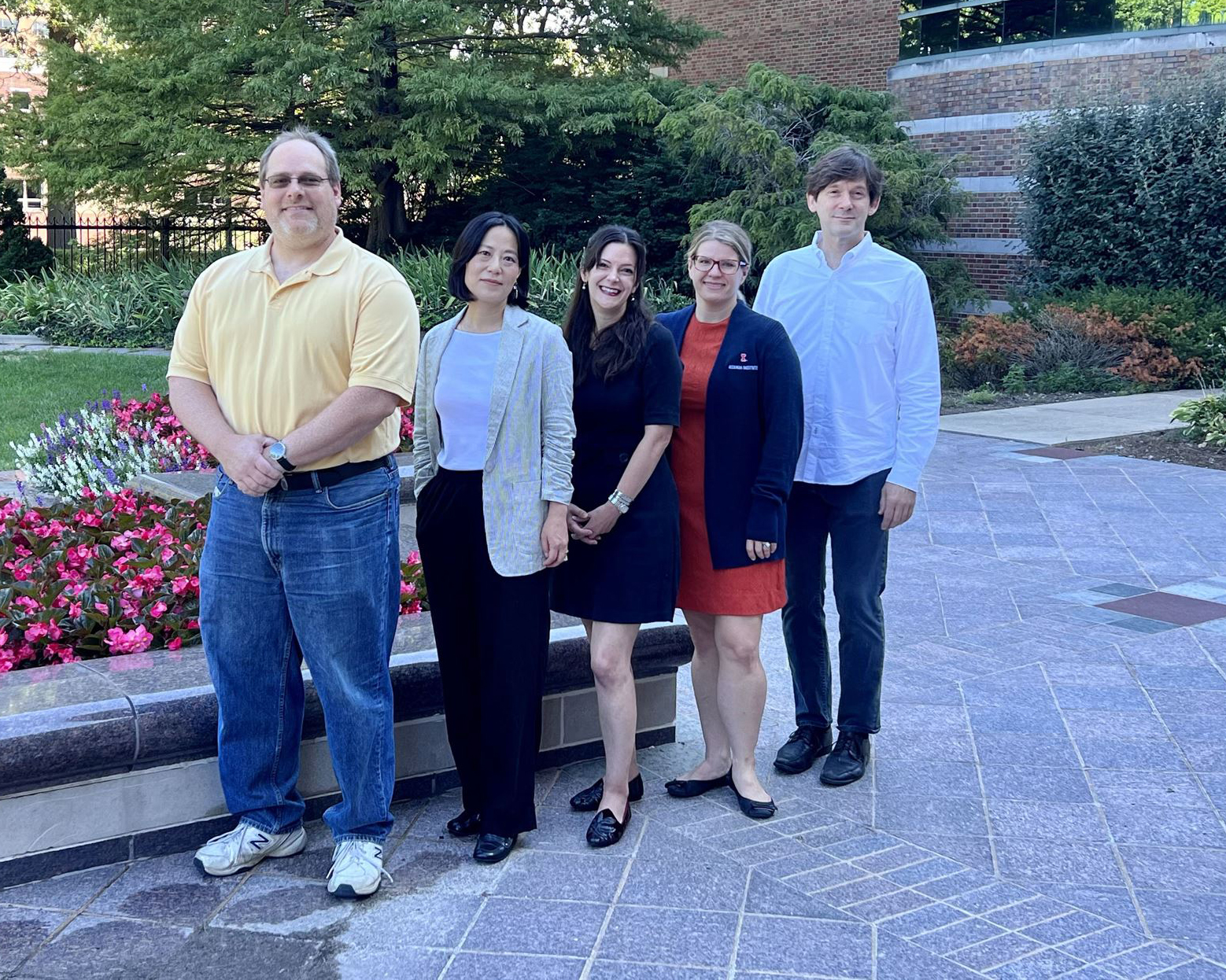Article
 URBANA, ILLINOIS – University of Illinois Urbana-Champaign has announced the Speech Accessibility Project, a new research initiative to make voice recognition technology more useful for people with a range of diverse
speech patterns and disabilities. The project launches with cross-industry support from Amazon, Apple, Google, Meta, and Microsoft, as well as nonprofit organizations whose communities will benefit from this accessibility initiative, to make speech
recognition more inclusive of diverse speech patterns.
URBANA, ILLINOIS – University of Illinois Urbana-Champaign has announced the Speech Accessibility Project, a new research initiative to make voice recognition technology more useful for people with a range of diverse
speech patterns and disabilities. The project launches with cross-industry support from Amazon, Apple, Google, Meta, and Microsoft, as well as nonprofit organizations whose communities will benefit from this accessibility initiative, to make speech
recognition more inclusive of diverse speech patterns.
“The option to communicate and operate devices with speech is crucial for anyone interacting with technology or the digital economy today,” said Mark Hasegawa-Johnson, the UIUC professor of electrical and computer engineering leading the project. “Speech interfaces should be available to everybody, and that includes people with disabilities. This task has been difficult because it requires a lot of infrastructure, ideally the kind that can be supported by leading technology companies, so we’ve created a uniquely interdisciplinary team with expertise in linguistics, speech, AI, security, and privacy to help us meet this important challenge.”
Today’s speech recognition systems, such as voice assistants and translation tools, don’t always recognize people with a diversity of speech patterns often associated with disabilities. This includes speech affected by Lou Gehrig’s disease or Amyotrophic Lateral Sclerosis, Parkinson’s disease, cerebral palsy, and Down syndrome. In effect, many individuals in these and other communities may be unable to benefit from the latest speech recognition tools.
With artificial intelligence and machine learning, technology companies can address the need for more inclusive speech recognition. To support this goal, The Speech Accessibility Project will collect speech samples from individuals representing a diversity of speech patterns. UIUC researchers will recruit paid volunteers to contribute recorded voice samples and will create a private, de-identified dataset which can be used to train machine learning models to better understand a wide variety of speech patterns. The Speech Accessibility Project will focus first on American English.
 Members of the UIUC research teamIn addition to Hasegawa-Johnson, the Speech Accessibility Project team includes Heejin Kim, a research professor in linguistics, and Clarion Mendes, a clinical professor in speech and hearing science and a speech-language pathologist. The team also
includes several staff members from UIUC’s Beckman Institute for Advanced Science and Technology, including information technology professionals who will build a secure repository
for the de-identified speech samples.
Members of the UIUC research teamIn addition to Hasegawa-Johnson, the Speech Accessibility Project team includes Heejin Kim, a research professor in linguistics, and Clarion Mendes, a clinical professor in speech and hearing science and a speech-language pathologist. The team also
includes several staff members from UIUC’s Beckman Institute for Advanced Science and Technology, including information technology professionals who will build a secure repository
for the de-identified speech samples.
Community-based organizations Davis Phinney Foundation and Team Gleason have already pledged support for the project.
“The Davis Phinney Foundation’s mission is to help people with Parkinson’s live well today,” said the foundation’s executive director Polly Dawkins. “Part of that commitment includes ensuring people with Parkinson’s have access to the tools, technologies, and resources needed to live their best lives. Parkinson’s affects motor symptoms, making typing difficult, so speech recognition is a critical tool for communication and expression. We are thrilled to partner with this team to ensure that this effort can benefit our community.”
Team Gleason, which serves the ALS community through a broad range of programming, assistive technology, equipment, and robust support services, shares a similar goal of expanding the usefulness of speech recognition tools. “Team Gleason strives each day to provide the best available assistive technology for the ALS community while simultaneously exploring ways to advance future solutions,” said Blair Casey, executive director for Team Gleason. “Technology has the ability to overcome communication barriers and increase independence. Team Gleason is proud to help accelerate this effort for people living with ALS and anyone else with speech differences.”
Community organizations will assist in participant recruitment and user testing, as well as provide feedback at various stages of the project. Sign up to be alerted when more information is available.
Media downloads are also available.
About Accessibility at UIUC
Researchers, staff, and students at UIUC have pioneered accessibility in the United States. In 1948, it became the first post-secondary institution to provide a support service program enabling students with
disabilities to attend. Since then, research on campus led to the development of the first architectural accessibility standards that would become the American National Standards Institute Standards. UIUC was home to the first wheelchair-accessible
bus system, first accessible university residence halls, and the first collegiate adapted sports and recreation program for students with disabilities.
About the Beckman Institute
The Beckman Institute is an interdisciplinary research institute on the UIUC campus. It is home to nearly 200 faculty members, 400 grad students, and 90 postdocs. Its researchers tackle topics like intelligence,
molecules, and imaging. The result: scientific advances that couldn’t occur any other way.
Speech Accessibility Project
405 N Mathews Ave., Urbana, IL 61801